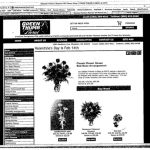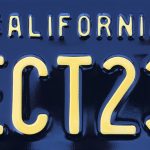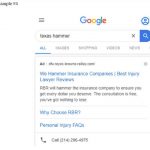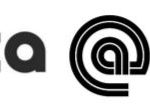2H 2020 Quick Links, Part 3 (Trademarks)
* John Bean Technologies Corp. v. BGSE Group, LCC (D. Utah Aug. 13, 2020). Plaintiffs are still litigating keyword metatag cases in 2020… JBT asserts likelihood of confusion under a distinct theory known as initial-interest confusion. “Initial-interest confusion ‘results when…

Domain Name Lawsuits Are Stupid (and the Initial Interest Confusion Doctrine Is Too)–Wooster Floral v. Green Thumb
This case concerns the domain name WoosterFloral.com. It was initially owned by Wooster Floral, a florist in Wooster, Ohio. However, in 2014, the owner wound down the business and didn’t renew the domain name. The store manager then bought out…

A Rare Case of a Judge Relying on the Initial Interest Confusion Doctrine (Boo)–Nike v. Warren Lotas
This case involves Warren Lotas sneakers that claimed to reinterpret one of Nike’s allegedly iconic sneaker stylings. The Fashion Law summarized the case, including this depiction: The sneaker similarities are obvious, which isn’t surprising because Warren Lotas styled its product…

YouTube Defeats Lawsuit Over Cryptocurrency Scam–Ripple v. YouTube
Ripple Labs developed a cryptocurrency called XRP. Scammers phished verified YouTube accounts and then used the hijacked accounts to post YouTube videos–seemingly from Ripple–inducing consumers to transfer their XRP, where they were stolen. YouTube allegedly responded to takedown notices slowly….

Competitive Keyword Advertising Still Isn’t Trademark Infringement, Unless…. –Adler v. Reyes & Adler v. McNeil
Competitive keyword advertising lawsuits are still stupid, and they are still typically doomed in court. This is especially true in keyword advertising disputes between rival lawyers, something that I spoke out against in 2016. Despite that, one of these two…

Court Orders Rightsowner to Withdraw DMCA Takedown Notices Sent to Amazon–Beyond Blond v. Heldman
This case involves an Amazon seller, the plaintiff, who packages and republishes public domain cartoon videos, like Bugs Bunny, Popeye, and Mighty Mouse. The defendant is a rightsowner who claims that the Amazon seller infringes its rights. On that basis,…

Three Keyword Advertising Decisions in a Week, and the Trademark Owners Lost Them All
If you are a trademark owner suing over competitive keyword ads, you are almost certainly making a bad business decision, and your attorney might be milking your bank account. If you are an attorney representing a trademark owner in a…

Geotagged Social Media Posts Didn’t Support Personal Jurisdiction–Court of Master Sommeliers v. Pilkey
The plaintiff runs certification programs for beverage experts. The highest certification is “master sommelier,” earned normally only by less than 10 people a year. In Sept. 2018, a record 24 candidates earned the certification. It turns out an insider leaked…
Print-on-Demand Vendor Doesn’t Qualify for DMCA Safe Harbor–Feingold v. RageOn
This case involves two copyright-protected photos that users submitted to the RageOn print-on-demand service. Among other defenses, RageOn invoked the DMCA safe harbor. The Greg Young v. Zazzle case held that Zazzle qualified for the 512(c) safe harbor for displaying…

Why Are Pizzerias Arguing Whether Web Browsing Is Copyright Infringement?–Imapizza v. At Pizza
“&Pizza” runs an East Coast pizzeria chain. “@Pizza” runs a UK pizzeria chain. Let’s disregard that both brands are terrible (the & and @ symbols plus the generic term–UGH) and that @Pizza may not own its eponymous Twitter account (the…
